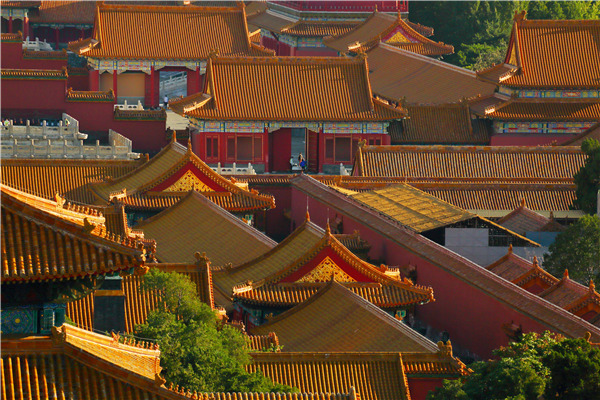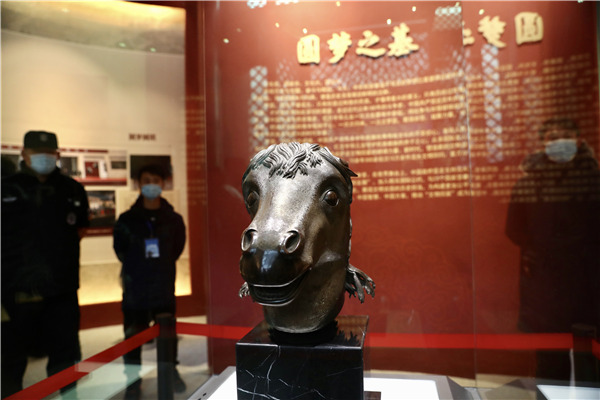 |
|
The Forbidden City's 600th anniversary celebration is one of the country's major cultural events this year. [Photo by Jiang Dong/China Daily] |
Forbidden City's anniversary
The Forbidden City, China's imperial palace from 1420 to 1911, where 24 emperors from the Ming (1368-1644) and Qing (1644-1911) dynasties once lived, celebrated the 600th anniversary of its completion this year.
Officially known as the Palace Museum today, the compound was closed for 98 days this year-the longest period in decades-to contain the novel coronavirus. But its reopening has been welcomed by enthusiastic visitors.
From September to November, crowds of people poured into the Meridian Gate Galleries for the exhibition, Everlasting Splendor: Six Centuries at the Forbidden City, which celebrated the vicissitudes of the former royal palace.
Other key exhibitions and symposiums were held and books were published, showing the significance the Forbidden City plays in Chinese culture.
Despite experiencing continuous wars and social upheavals, thanks to good fortune and recent years' devoted restoration, the world's largest palace complex-covering 720,000 square meters-remains almost as glorious as in bygone days.
 |
|
A bronze sculpture of a horse's head, which was looted by invaders in the 19th century, is on display at its home site in Beijing's Old Summer Palace. [Photo by Zou Hong/China Daily] |
Lost treasures return home
A famous bronze sculpture of a horse's head, which was looted by the invading Anglo-French alliance from the Qing royal resort, Yuanmingyuan, or the Old Summer Palace, in Beijing in 1860 was returned to its home site on Dec 1, after a long stay overseas.
The bust was bought by late Hong Kong-Macao business magnate Stanley Ho Hung-sun in 2007 and was donated to the National Cultural Heritage Administration last year.
Likewise, 68 long-lost Chinese cultural relics arrived in Beijing from the United Kingdom on Oct 20 after continuous repatriation efforts.
These pieces were seized by British police in 1995 but had remained in police custody in London because their local buyer refused to participate in negotiations. The stalemate was broken this year due to the close cooperation of diplomatic, judicial, law-enforcement and cultural authorities in China and the UK.